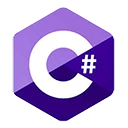Creating a budgeting and expense tracking application involves managing financial data, performing calculations, and providing a user-friendly interface. In this example, we'll introduce the concept with a basic code snippet to manage expenses and calculate a budget.
Sample C# Code for Expense Tracking
Here's a basic example of C# code for managing expenses and calculating a budget:
using System;
using System.Collections.Generic;
class Expense
{
public string Name { get; set; }
public decimal Amount { get; set; }
}
class BudgetingApp
{
private List<Expense> expenses = new List<Expense>();
private decimal budget;
public void AddExpense(Expense expense)
{
expenses.Add(expense);
}
public void SetBudget(decimal budgetAmount)
{
budget = budgetAmount;
}
public decimal CalculateRemainingBudget()
{
decimal totalExpenses = expenses.Sum(e => e.Amount);
return budget - totalExpenses;
}
}
class Program
{
static void Main()
{
var budgetApp = new BudgetingApp();
budgetApp.SetBudget(1000.0m);
budgetApp.AddExpense(new Expense { Name = "Groceries", Amount = 200.0m });
budgetApp.AddExpense(new Expense { Name = "Rent", Amount = 600.0m });
decimal remainingBudget = budgetApp.CalculateRemainingBudget();
Console.WriteLine("Budget: $" + budgetApp.CalculateRemainingBudget());
Console.WriteLine("Remaining Budget: $" + remainingBudget);
}
}
This code defines a `BudgetingApp` class that allows you to set a budget, add expenses, and calculate the remaining budget. In a complete application, you would create a user interface and potentially save data to a database.
Sample HTML Budgeting Form
Below is a simple HTML form for entering expenses:

